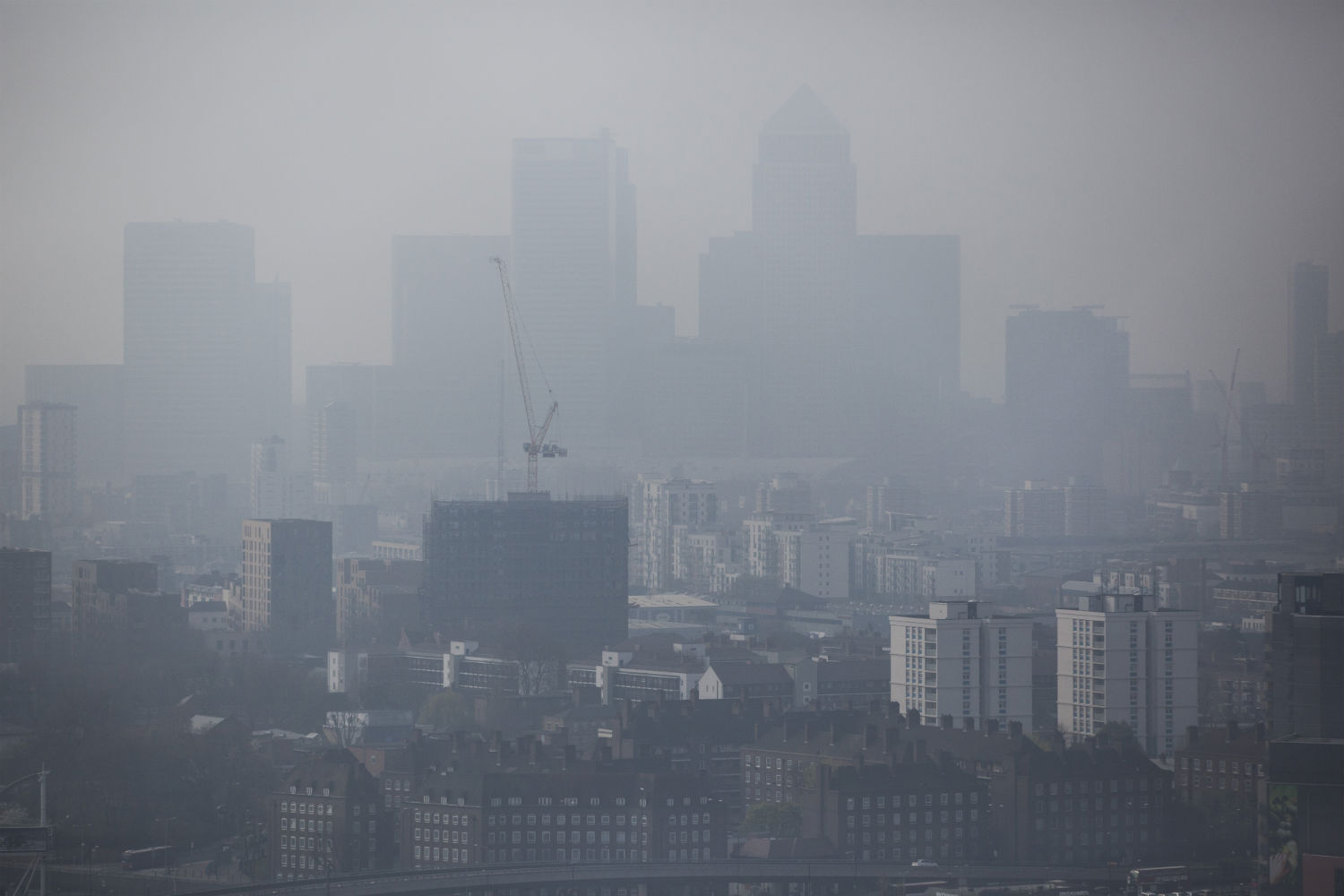
For the last few days, the skyline of London—so often an indifferent gray—has resembled Los Angeles in the 1960s, or Beijing. A nasty bout of smog has gripped Britain’s capital and much of England, with pollution levels so high that people with health problems and the elderly have been warned to avoid strenuous activity outside.
London’s current smog is nothing compared to the air pollution the city once suffered—the city was choked in coal smoke for much of the 19th century, and the Great Smog of 1952 killed some 4,000 people. But what’s truly unusual is the cause: not just local emissions from cars and power plants, but from dust that has blown in from the Sahara Desert in northern Africa, over 2,000 miles (3,218 km) away. The dust has blown in on northern winds, where it mixes in the air with local pollutants. The dust is brought down to earth by rain, and when that water evaporates, it leaves behind a layer of visible dust.
Britain isn’t the only place that can have dust-related smog. In East Asia, sand from the Gobi Desert is blown east every spring. The so-called Asian Dust passes over parts of China, North and South Korea and Japan, sometimes so heavy that residents can feel the dust in their eyes and their teeth. The dust can even be carried thousands of miles across the Pacific to North America—a study published in Science last year found that dust in the atmosphere can actually increase rainfall in California.
But what’s worrying is that the Gobi is growing every year, as excessive farming in China and increasingly dry weather converts grassland into desert. The Chinese government has tried to create what it calls a “Green Belt” of millions of trees that it hopes will hold back the spread of desertification, but so far, many of them have died. And climate change seems likely to increase the rate of desertification, as the Gobi gets even hotter and drier. In a changing world, not even deserts can be trusted to stay in the same place—as London is learning.
More Must-Reads from TIME
- Why Biden Dropped Out
- Ukraine’s Plan to Survive Trump
- The Rise of a New Kind of Parenting Guru
- The Chaos and Commotion of the RNC in Photos
- Why We All Have a Stake in Twisters’ Success
- 8 Eating Habits That Actually Improve Your Sleep
- Welcome to the Noah Lyles Olympics
- Get Our Paris Olympics Newsletter in Your Inbox
Contact us at letters@time.com